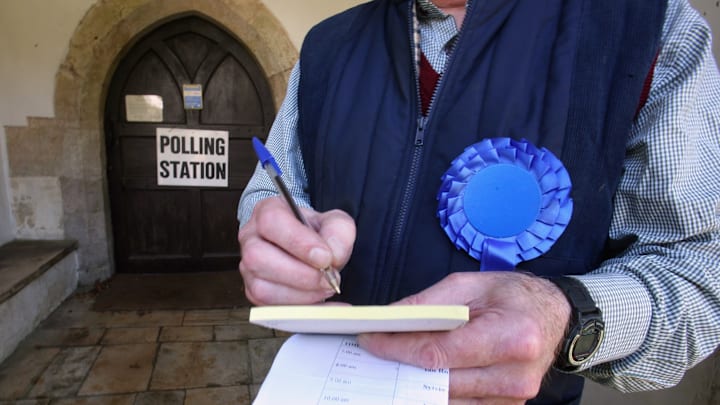As midterm elections near, voters are starting to make plans for how they intend to cast their votes—and where. While formal polling stations and mail-in ballots are options, many Americans opt to visit their local churches to make their voices heard. In some areas, houses of worship can make up to 25 percent of local ballot boxes. So why are churches such popular polling places?
Part of the reason is simple logistics. According to The Conversation, churches are virtually ideal for doubling as a polling station because they happen to be large buildings that can accommodate a sizeable number of people. Of course, so can your local Costco, but the difference is that churches are typically empty aside from scheduled services or activities. They’re also easy to find, easily accessible, and most importantly, won’t charge for use of the space.
But what’s particularly interesting about voting at a church is whether a secular environment may lead someone to make specific voting choices.
Can voting in church sway a person’s opinion?
Writing for The Conversation, author and University of Maine Associate Professor of Psychology Jordan LaBouff observed that people tend to take social cues from stereotypes about the space they’re occupying, a phenomenon known as the priming effect. If you’re at a hockey game, you’re probably predisposed to cheer loudly. If you’re in a library, you’re going to speak in hushed tones.
LaBouff once conducted a survey of 100 people and asked them questions about their political leanings. Those standing near a cathedral tended to have stronger opinions about conservative topics like immigration and drug policies than those who were standing near a government building. LaBouff’s examination of 2016 election data for Virginia supported this observation, noting that voting in churches tends to lead to greater conservative support.
While that may seem sensible and perhaps even obvious, LaBouff found that people of similar religious beliefs tended to have more conservative voting leanings when casting ballots inside of a church as opposed to a neutral venue. The church, in other words, seemed to strengthen and reinforce their preferences.
This subtle impression extends to schools, too. In an analysis of Arizona’s 2000 general election, those voting in schools were more likely to support education funding than those voting elsewhere.
There are some who find that this seeming relationship between church and state is unfair, but federal courts typically find that those who object to visiting a place of worship can cast absentee ballots or find another venue. Either way, it seems likely that where you vote can influence how you vote, whether you’re aware of it or not.
[h/t The Conversation]
